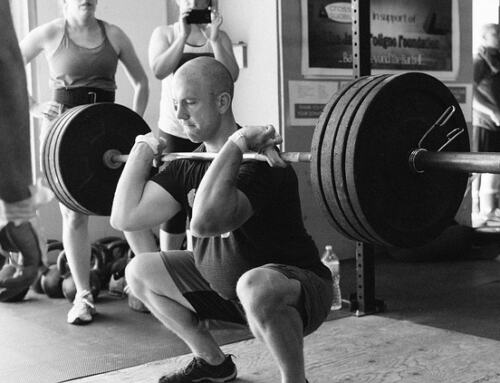Are You Getting Enough Calcium?
This essential mineral is key to bone health and much more. Learn how to keep your calcium stores strong.
If you count on dairy for bone-supporting calcium, chalk it up to compelling advertising. Remember the long-running “Got Milk?” campaign and the “Milk. It does a body good.” commercials? Thanks to more than 30 years of industry-funded marketing efforts like these, we’ve repeatedly heard the message that dairy is the best source for dietary calcium.
But that’s not necessarily the case.
“Americans have been fed a lot of misinformation about dairy products, including milk,” says Mark Hyman, MD, director of the Cleveland Clinic Center for Functional Medicine and author of Food: What the Heck Should I Eat? “There is no evidence that cow’s milk builds better bones.”
Indeed, various analyses, including the seminal Harvard Nurses’ Health Study, show no correlation between increased dairy consumption and lowered risk of hip or arm fractures due to osteoporosis, a disease characterized by loss of bone tissue.
So, despite heeding recommendations to get plenty of dairy, many people are still coming up short on calcium — and may not even realize it. Some 54 million Americans suffer from low bone density or osteoporosis, according to the National Osteoporosis Foundation. Roughly one in two women and up to one in four men over the age of 50 will break a bone as a result.
While there are many risk factors for osteoporosis (and its precursor, osteopenia), long-term calcium insufficiency is among the most significant.
Calcium Does a Body Good
Calcium is the most abundant mineral in the body. In addition to building bone, it supports a variety of metabolic functions — including blood clotting, vascular contraction and vasodilation, muscle contraction (including heart contraction), and nerve transmission. “Pretty much every cell depends on it,” explains Hyman.
Yet, only a small percentage of the body’s calcium is needed for these biochemical operations. More than 99 percent is stored in the skeleton (including teeth), where it strengthens the collagen-based framework of bone.
Bone is a living structure that continuously remakes itself: New bone tissue is formed from calcium and other minerals, and old bone tissue is resorbed, sending calcium back into the bloodstream. When overall calcium levels are low, the body taps the calcium stores in bone to maintain the right amount in the blood to support the necessary biochemical functions.
“Humans run on a teeter-totter system,” explains functional-medicine physician Gregory Plotnikoff, MD. “The body is constantly working to keep our systems stable — in homeostasis — despite changes in the environment.”
This can come at a price. Drawing on calcium stores to compensate for low circulating calcium over a long period endangers the body’s structure, leading to bone loss, fractures, osteopenia, and osteoporosis.
The good news is that a well-rounded diet rich in whole foods — including bok choy and kale, as well as beans, nuts, and seeds, and bone-in salmon and sardines — can provide most if not all of the calcium we need. Read on to learn more about this valuable nutrient.
Healthy Food Sources
For calcium absorption and retention, whole foods are your best bet. Integrative nutritionist Amanda Archibald, RDN, founder of The Genomic Kitchen, recommends a diverse selection of calcium-rich foods that also deliver nutrients, including vitamin D, vitamin K2, and magnesium — all of which support calcium bioavailability.
“Bone is a matrix of nutrients, so we need to eat a wide variety of healthy foods,” she says. “No single food can do it all. That’s not how the body operates.”
Archibald recommends dairy only in cultured form, such as unsweetened yogurt, kefir, or aged cheeses. “Don’t make dairy your go-to for calcium,” she says. “Make it a side conversation, not the focus.” (For more on why dairy can be problematic, see “The Trouble With Dairy” below.)
The Food and Nutrition Board of the Institute of Medicine, National Academy of Sciences recommends a daily calcium intake of 1,000 mg for women between 19 and 50 years old, and 1,200 mg after that. Men are advised to consume 1,000 mg of calcium daily until age 70, and 1,200 mg afterward. (These values, some skeptics note, are influenced by the dairy industry.)








